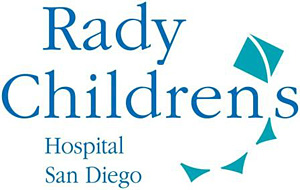
|  |  |  Health & Beauty | July 2008 Health & Beauty | July 2008  
Hospital Gets Help For Kids With Cancer
 Cheryl Clark - San Diego Union-Tribune Cheryl Clark - San Diego Union-Tribune
go to original


| | Rady Children's Hospital is San Diego region's only designated pediatric trauma center and the only area hospital dedicated solely to pediatric care. | | |
Tijuana – With help from Rady Children's Hospital San Diego, Mexican children with cancer now can be treated in a Tijuana hospital equipped and qualified to provide state-of-the-art care – with financial blessing from the Mexican federal government.

The new five-bed unit, which opened yesterday in the General Hospital in Tijuana, is the only publicly funded cancer facility for children in Tijuana. It is expected to admit at least 100 new cancer patients and provide about 400 with radiation, chemotherapy and other medical treatments for leukemia and solid tumors each year.

The new unit also is expected to reduce infections – a common occurrence in fragile cancer patients – because it is sequestered from other areas of the hospital to keep germs such as tuberculosis from being transmitted from other patients, said Dr. William Roberts, Rady's director of hematology/oncology.

“With the opening of this unit, we expect more kids will survive childhood cancer,” said Roberts, who has worked for more than two years to launch the project.

Most of the Mexican children whose cancer is diagnosed at Rady Children's Hospital are in San Diego with undocumented parents, who may be here visiting or working, Roberts said. Some families may cross the border seeking other options for their sick children.

Often the children arrive at the emergency room when their illnesses have become so serious that they will die if not promptly treated, Roberts said. For example, a tumor growth may begin to press on a nerve or cause severe seizures.

After treating the cancer in an emergency setting, which is required by federal law, Rady doctors try to arrange for the children to continue receiving care close to their homes in Mexico.

Rady sends at least 10 children a year back to Tijuana for follow-up care because they are not eligible for U.S. government health programs, Roberts said.

Roberts said the new cancer unit will add efficiency, because Rady patients who are well enough to travel will be quickly transferred to Mexico for continued care .

“Previously, we sometimes spent several weeks making connections” to find a place to transfer the patient, he said.

All too often, Rady could not find any facility to accept these patients because until now, no Tijuana hospital provided a level of childhood cancer care that qualified for Mexican federal reimbursement.

“There were times when (Mexican doctors) were not able to get certain drugs that were needed. They were treating with whatever they had,” Roberts said. “They were doing the best they could.”

Last year's alliance between Rady and St. Jude Children's Research Hospital in Memphis, Tenn., a world-renowned pediatric cancer care and research center that has developed Spanish-language cancer training materials, helped speed a solution.

With financing from St. Jude, Tijuana caregivers have received appropriate training, Roberts said. General Hospital now meets the reimbursement criteria through Seguro Popular, Mexico's health insurance program.

In the United States, Roberts said, children with cancer are typically treated by board-certified specialists in hematology and oncology, but that has not been the case in Tijuana. In the new unit, care will still be provided by regular pediatricians, but now they will focus only on childhood cancer and be supervised by two trained hematology/oncology pediatricians.

“With the federal approval, these children will now get the drugs they need and be able to build a stronger clinical program,” Roberts said.

Dr. Mario Alberto Ornelas, cancer physician at the General Hospital, said caregivers there are very excited.

“Now, we're expecting to dramatically improve the quality of life and probability of cure,” he said.

“With St. Jude, the biggest hospital in the world for children with cancer, we will have guidance, medical assistance, computer training and virtually any kind of help we need. They have helped us a lot.”

Having an approved cancer hospital for children in Tijuana is a relief for oncologists at Rady Children's for another reason.

After radiation and chemotherapy to shrink a tumor, which is then surgically removed, a child might seem fine. But the child requires an additional nine months of chemotherapy to keep the cancer away, and families might not see the need. If they live far away, they might see a return to a hospital as burdensome.

Now, having dedicated staff will help assure that those children get follow-up care, Roberts said.

Also, with an approved pediatric cancer program, caregivers will emphasize to families the importance of maintaining hygiene to keep infections to a minimum.

General Hospital now offers the only publicly supported program for children with cancer in Tijuana. A smaller facility in the La Mesa area, Castro-Limon Foundation, receives all its funding through philanthropy.

cheryl.clark(at)uniontrib.com |

 |
|  |



